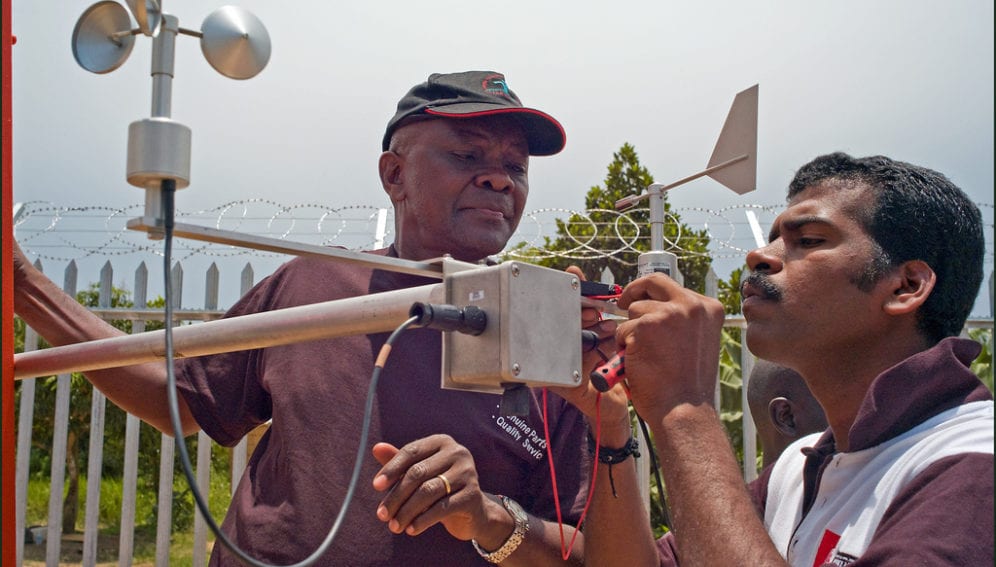By: Jan Piotrowski
Send to a friend
The details you provide on this page will not be used to send unsolicited email, and will not be sold to a 3rd party. See privacy policy.
[WARSAW] Africa’s national meteorological centres have led the way in regional cooperation on climate research, showing the world how to provide usable information from scant resources, a side event at the UN climate summit has heard.
But despite this pioneering work, underfunding and political indifference severely limits their ability to assist efforts to adapt to climate change, experts have said in Warsaw, Poland, where the UN Framework Convention on Climate Change’s Conference of the Parties (COP19) is taking place.
“[African] countries have a very low [meteorological] capacity, but they have succeeded in coming together to achieve more than other regions could have,” Rupa Kolli, chief of the World Meteorological Organization’s World Climate Applications and Services Division, tells SciDev.Net.
As proof of this innovation, Kolli highlights climate outlook forums, through which experts from across different regions of Africa convene to make seasonal temperature and rainfall predictions using national, regional and global data, with the aim of aiding end users in areas such as agriculture, health and disaster risk reduction, and helping adapt to climate change.
“[African] countries have a very low [meteorological] capacity, but they have succeeded in coming together to achieve more than other regions could have.”
Rupa Kolli, World Meteorological Organization
This system, pioneered in Africa, has spread to many regions of the world, Kolli adds.
Another sign of innovation among African meteorologists is embodied by the African Center of Meteorological Application for Development, says its director-general, Adama Diallo.
The centre aims to help national meteorology offices develop early-warning and advisory tools based on meteorological data to allow them to tackle specific problems such as the potential spread of diseases, coastal protection against erosion and storm surges, and extreme weather effects.
One project, for example, is using seasonal and long-term weather forecasts to improve sustainable water management in the Niger River delta.
“Without this link between meteorology and development, we will solve nothing,” he tells SciDev.Net. “There are many who create scientific information that does nothing for those on the ground.”
Regional organisation has succeeded because of, not in spite of, a lack of resources, says Diallo, as national meteorological researchers had little choice but to pool resources.
But in the end, regional cooperation is only as good as the national meteorological centres involved, he says.
In this respect, African meteorological institutions are still way behind most of the world due to poor infrastructure, such as weather stations, and limited human capacity brought about by political apathy, he says.
Strong national centres are also essential for communicating climate findings to end users, says Diallo.
“A regional centre cannot work with end users as they are too far removed. That is up to the national meteorological centres, but no dialogue exists,” he says.
Kolli agrees that insufficient communication channels are preventing data from becoming an effective tool for climate adaptation work.
“We don’t give opportunities for users to express themselves and tell us what they need,” he says. “We just dish out information and expect them to use it.”
This communication gap was laid bare during the 2011 famine in Somalia, says Kolli, when despite a climate outlook forum accurately predicting drought six months in advance, the warning did not reach individuals in time for them to prepare for the disaster.
But he believes that, if steps are taken to build capacity and streamline national meteorological centres’ work, the existing culture of cooperation will help to maximise the gains that new research can have on development.
“The future is bright,” he concludes.














